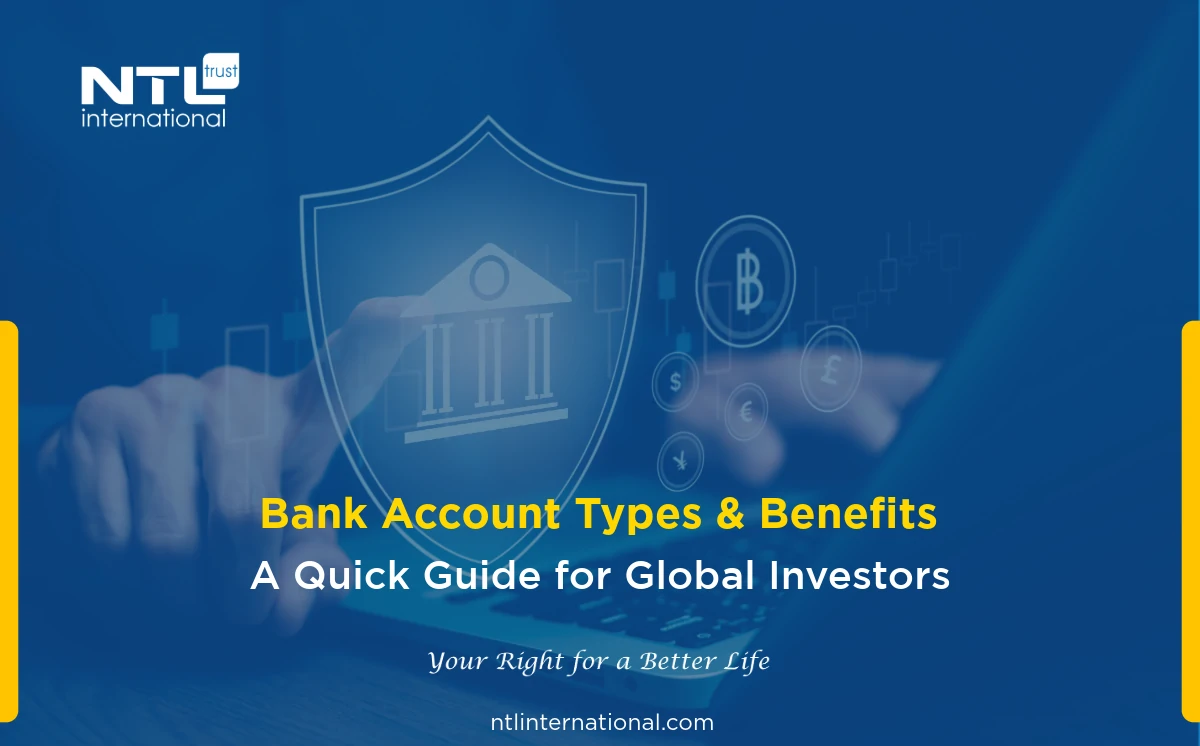
Bank accounts are essential tools that individuals and companies need to manage their finances effectively. In our modern era, the types of bank accounts vary to meet the needs of different clients, whether individuals or institutions. This article will review the history of opening bank accounts, their concept, benefits, and different types, as well as how investors with second citizenship can benefit from these accounts.
When was the first bank account opened?
The history of bank accounts dates back to ancient times when they were used to store wealth and facilitate trade exchanges. With the evolution of financial systems, the first modern bank was established in Italy in the 15th century. Since then, the concept of bank accounts has evolved to become an essential part of the global financial system.
The Concept of a Bank Account:
A bank account is an agreement between the client and the bank that allows the client to deposit and withdraw money and conduct other financial transactions. A bank account includes a range of services such as withdrawals and deposits, transfers, and the ability to obtain payment cards. A bank account is a safe and reliable way to manage money.
To learn how to open a bank account in 2025, click here.
What are the benefits for types of bank accounts:
Types of bank accounts have several benefits, including:
- Security: Banks provide protection for money against theft or loss.
- Convenience: They facilitate daily financial transactions such as paying bills and making purchases.
- Saving and Investment: The ability to earn interest or invest money.
- Financial Planning: Easy tracking of expenses and revenues.
- Financial Reports: Banks provide periodic reports on financial transactions to help clients manage their budgets.
Types of Bank Accounts:
The types of bank accounts vary to meet different client needs, the most prominent of which include:
- Current Account: Used for daily transactions such as deposits and withdrawals.
- Savings Account: Aimed at saving and offers interest on deposited amounts.
- Private Account: Designed for high-net-worth clients and offers personalized banking services.
- VIP Account: Offers additional features such as free financial consultations and special services.
- Business Account: Designed for companies and allows effective money management.
- International Account: Enables management of funds across borders, suitable for investors and second citizenship holders.
How Does a Second Citizenship Investor Benefit from a Bank Account?
Investors who have obtained second citizenship can benefit from many types of bank accounts in several ways. First, they can use these accounts to facilitate international financial transactions, enhancing investment opportunities in new markets. Second, some countries offer tax advantages for foreign investors, helping them achieve higher returns on their investments. Finally, bank accounts can be an important tool for wealth management and diversifying the investment portfolio.
In conclusion, types of bank accounts are a vital tool in the world of finance and business. By understanding their types and benefits, individuals and companies can make sound financial decisions that meet their specific needs. If you are looking for tailored banking solutions to meet your needs, you can consult our experts at NTL International, where we offer you a variety of banking options suitable for every investor.
Top Citizenship by investment Programs in 2026
Top Citizenship by Investment Programs in 2026 | NTL International src="https://ntlinternational.com/wp-content/uploads/2026/02/ntl_top10_cbi__map.webp" alt="World map showing the top citizenship by investment programs ranked by application volume 2026, NTL...





